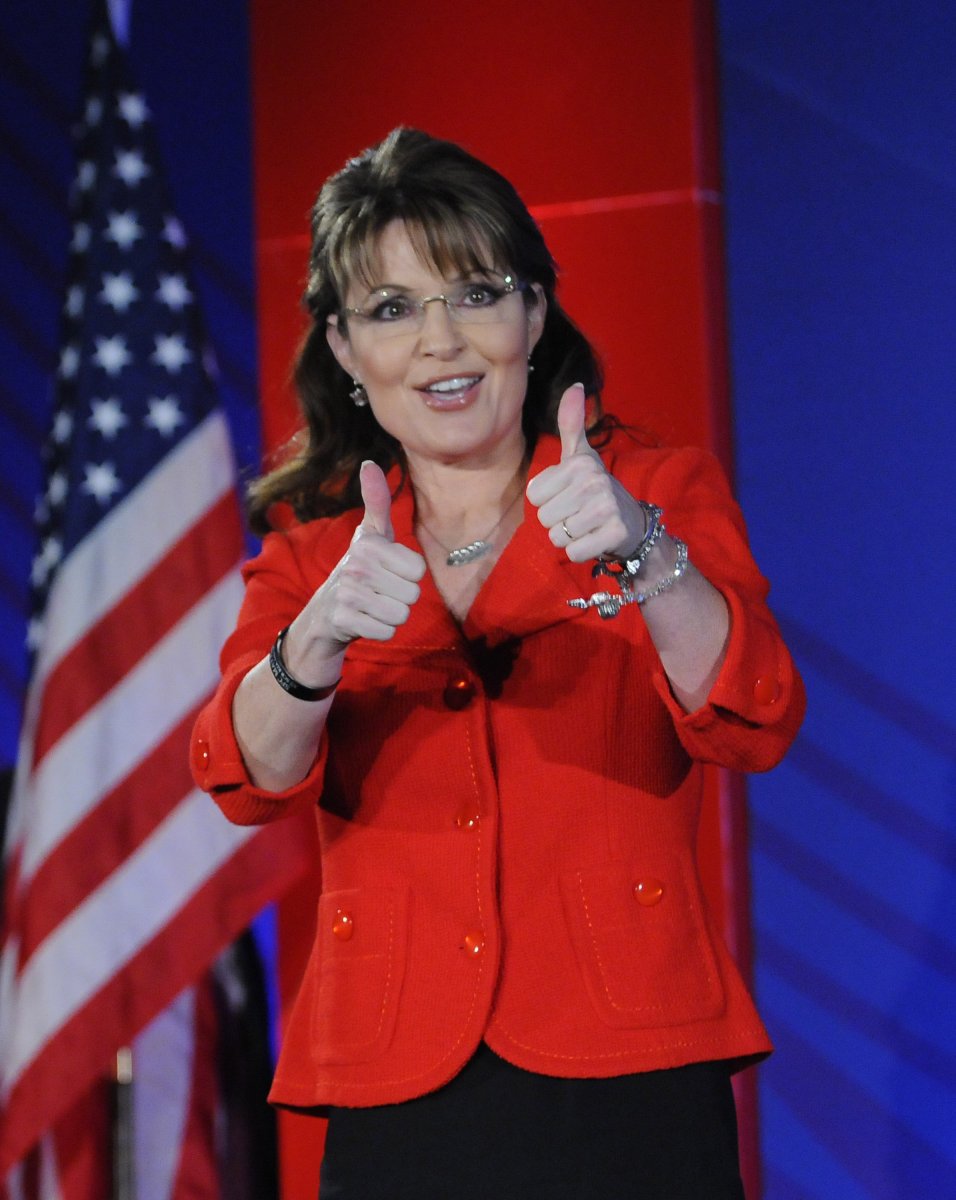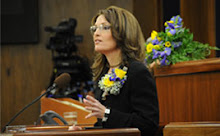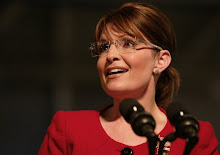Part One: Sarah to LOTUS, “Where are you?”
Sarah Palin woke one morning and decided to write an op-ed to the Washington Post which I have copied for you here from her Facebook page.
Wednesday, December 9, 2009 at 2:34pm
Copenhagen’s political science
The Washington Post
By Sarah Palin
Wednesday, December 9, 2009
With the publication of damaging e-mails from a climate research center in Britain, the radical environmental movement appears to face a tipping point. The revelation of appalling actions by so-called climate change experts allows the American public to finally understand the concerns so many of us have articulated on this issue.
“Climate-gate,” as the e-mails and other documents from the Climate Research Unit at the University of East Anglia have become known, exposes a highly politicized scientific circle -- the same circle whose work underlies efforts at the Copenhagen climate change conference. The agenda-driven policies being pushed in Copenhagen won’t change the weather, but they would change our economy for the worse.
The e-mails reveal that leading climate “experts” deliberately destroyed records, manipulated data to “hide the decline” in global temperatures, and tried to silence their critics by preventing them from publishing in peer-reviewed journals. What’s more, the documents show that there was no real consensus even within the CRU crowd. Some scientists had strong doubts about the accuracy of estimates of temperatures from centuries ago, estimates used to back claims that more recent temperatures are rising at an alarming rate.
This scandal obviously calls into question the proposals being pushed in Copenhagen. I’ve always believed that policy should be based on sound science, not politics. As governor of Alaska, I took a stand against politicized science when I sued the federal government over its decision to list the polar bear as an endangered species despite the fact that the polar bear population had more than doubled. I got clobbered for my actions by radical environmentalists nationwide, but I stood by my view that adding a healthy species to the endangered list under the guise of “climate change impacts” was an abuse of the Endangered Species Act. This would have irreversibly hurt both Alaska’s economy and the nation’s, while also reducing opportunities for responsible development.
Our representatives in Copenhagen should remember that good environmental policymaking is about weighing real-world costs and benefits -- not pursuing a political agenda. That’s not to say I deny the reality of some changes in climate -- far from it. I saw the impact of changing weather patterns firsthand while serving as governor of our only Arctic state. I was one of the first governors to create a subcabinet to deal specifically with the issue and to recommend common-sense policies to respond to the coastal erosion, thawing permafrost and retreating sea ice that affect Alaska’s communities and infrastructure.
But while we recognize the occurrence of these natural, cyclical environmental trends, we can’t say with assurance that man’s activities cause weather changes. We can say, however, that any potential benefits of proposed emissions reduction policies are far outweighed by their economic costs. And those costs are real. Unlike the proposals China and India offered prior to Copenhagen -- which actually allow them to increase their emissions – President Obama’s proposal calls for serious cuts in our own long-term carbon emissions. Meeting such targets would require Congress to pass its cap-and-tax plans, which will result in job losses and higher energy costs (as Obama admitted during the campaign). That’s not exactly what most Americans are hoping for these days. And as public opposition continues to stall Congress’s cap-and-tax legislation, Environmental Protection Agency bureaucrats plan to regulate carbon emissions themselves, doing an end run around the American people.
In fact, we’re not the only nation whose people are questioning climate change schemes. In the European Union, energy prices skyrocketed after it began a cap-and-tax program. Meanwhile, Australia’s Parliament recently defeated a cap-and-tax bill. Surely other nations will follow suit, particularly as the climate e-mail scandal continues to unfold.
In his inaugural address, President Obama declared his intention to “restore science to its rightful place.” But instead of staying home from Copenhagen and sending a message that the United States will not be a party to fraudulent scientific practices, the president has upped the ante. He plans to fly in at the climax of the conference in hopes of sealing a “deal.” Whatever deal he gets, it will be no deal for the American people. What Obama really hopes to bring home from Copenhagen is more pressure to pass the Democrats’ cap-and-tax proposal. This is a political move. The last thing America needs is misguided legislation that will raise taxes and cost jobs – particularly when the push for such legislation rests on agenda-driven science.
Without trustworthy science and with so much at stake, Americans should be wary about what comes out of this politicized conference. The president should boycott Copenhagen.
_______________________________________________________________________
Steven Hayward has a great article in The Weekly Standard on the Climategate scandal. Be sure to check it out.
The response to my op-ed by global warming alarmists has been interesting. Former Vice President Al Gore has called me a “denier” and informs us that climate change is “a principle in physics. It’s like gravity. It exists.”
Perhaps he’s right. Climate change is like gravity – a naturally occurring phenomenon that existed long before, and will exist long after, any governmental attempts to affect it.
However, he’s wrong in calling me a “denier.” As I noted in my op-ed above and in my original Facebook post on Climategate, I have never denied the existence of climate change. I just don’t think we can primarily blame man’s activities for the earth’s cyclical weather changes.
Former Vice President Gore also claimed today that the scientific community has worked on this issue for 20 years, and therefore it is settled science. Well, the Climategate scandal involves the leading experts in this field, and if Climategate is proof of the larger method used over the past 20 years, then Vice President Gore seriously needs to consider that their findings are flawed, falsified, or inconclusive.
Vice President Gore, the Climategate scandal exists. You might even say that it’s sort of like gravity: you simply can’t deny it.
- Sarah Palin
Part Two: Eugene Robinson Opens Big Mouth
Tuesday, December 15, 2009
Sarah Palin is such a cold-eyed skeptic about the Copenhagen summit on climate change that it's no surprise she would call on President Obama not to attend. After all, Obama might join other leaders in acknowledging that warming is a "global challenge." He might entertain "opportunities to reduce greenhouse gas emissions." He might even explore ways to "participate in carbon-trading markets."
Oh, wait. Those quotes aren't from some smug Euro-socialist manifesto. They're from an administrative order Palin signed in September 2007, as governor of Alaska, establishing a "sub-Cabinet" of top state officials to develop a strategy for dealing with climate change.
Back then, Palin was the governor of a state where "coastal erosion, thawing permafrost, retreating sea ice, record forest fires, and other changes are affecting, and will continue to affect, the lifestyles and livelihoods of Alaskans," as she wrote. Faced with that reality, she sensibly formed the high-level working group to chart a course of action.
"Climate change is not just an environmental issue," wrote Palin. "It is also a social, cultural, and economic issue important to all Alaskans."
Palin mentioned having created the climate change unit in an op-ed she wrote last week for The Post. What she didn't acknowledge was the contrast between what she says about climate change now and what she said -- and did -- about it as governor of our most at-risk state. When she was in office, Palin treated the issue as serious, complex and worthy of urgent attention. Now that she's the iconic leader of a populist movement that reacts with anger at the slightest whiff of pointy-headed, "one world" intellectualism, she writes as if the idea of seeking ways to mitigate climate change is a crock.
"Alaska's climate is warming," Palin wrote to Alaskans in a July 2008 newsletter. "While there have been warming and cooling trends before, climatologists tell us that the current rate of warming is unprecedented within the time of human civilization. Many experts predict that Alaska, along with our northern latitude neighbors, will warm at a faster pace than any other areas, and the warming will continue for decades."
In her administrative order, Palin instructed the sub-Cabinet group to develop recommendations on "the opportunities to reduce greenhouse gas emissions from Alaska sources, including the expanded use of alternative fuels, energy conservation, energy efficiency, renewable energy, land use management, and transportation planning." She also instructed the group to look into "carbon-trading markets."
But in her op-ed last week, Palin -- while acknowledging "natural, cyclical environmental trends" and the possibility that human activity might be contributing to warming -- states flatly that "any potential benefits of proposed emissions reduction policies are far outweighed by their economic costs." What she once called "carbon-trading markets" she now denounces as "the Democrats' cap-and-tax proposal."
Palin cites the "Climate-gate" e-mail scandal as reason enough for the president to skip the Copenhagen summit. I've written about those e-mails and why, despite what skeptics say, they do not begin to prove that climate science is fraudulent, politicized or fundamentally flawed. The most compelling evidence for climate change is found in the Arctic, and Palin has seen it firsthand.
In her 2008 newsletter, Palin mentioned one coastal village, Newtok, that would have to be relocated because of flooding due to the effects of warmer temperatures. Since then, relocation plans have been developed for two more towns, Shishmaref and Kivalina. The Army Corps of Engineers has identified more than 160 villages that are threatened, according to a recent newsletter from Palin's successor, Gov. Sean Parnell. At least 31 are judged to be in "imminent" peril.
In case anyone was wondering, Palin's home town of Wasilla sits at an elevation of 333 feet -- high and dry.
The chairman of the Cabinet working group that Palin assembled to develop a climate change strategy, Larry Hartig, is scheduled to deliver a presentation at Copenhagen. Posted in advance on the Internet, the presentation shows that Alaskans aren't just fretting about the abstract possibility of effects from warming. They're dealing with a real, live situation.
I predict we'll see more artful dodges of this kind from Palin. She made any number of pragmatic, reasonable, smart decisions as governor -- and now, it seems, will be obliged to renounce them all. Her tea-party legions have one answer -- a shouted "No!" -- for every question.
Palin knows better, but she has to fiddle her followers' chosen tune -- not while Rome burns, but while Nome melts.
Part Three: Sarah Shuts Robinson’s Big Mouth
Today at 1:41pm
Letter to the Editor
Washington Post
Thursday, December 17, 2009
I’d like to thank Eugene Robinson for highlighting Alaska’s achievements on climate change [“Palin’s own ‘Climate- gate,’” op-ed, Dec. 15] and for noting that I’ve “treated the issue as serious, complex, and worthy of urgent attention,” while making “any number of pragmatic, reasonable, smart decisions as governor.” But he’s wrong to suggest that my views have somehow changed or that now I’ll have to “renounce” my past efforts.
Once again: I don’t deny that climate change is real. In creating a sub-cabinet to deal specifically with the issue, I said that “Alaska’s climate change strategy must be built on sound science and the best available facts and must recognize Alaska’s interest in economic growth and the development of its resources.” That goal made sense to me then, and it makes sense to me now.
Mr. Robinson tries to make hay out of the fact that I asked the group to advise me regarding opportunities to participate in “carbon-trading markets.” But considering voluntary participation in carbon-trading programs is much different from endorsing the economically disastrous cap-and-tax proposals put forward by Democrats in Washington. Those proposals will burden our job creators and raise energy prices for all of us, and that’s why I oppose them.
As governor of Alaska, I sought common-sense solutions that took real-world costs and benefits into account. That’s what I’m looking for now. But that’s not what’s on the table in Washington or in Copenhagen.
Sarah Palin, Wasilla, Alaska
Opinions expressed on this site are solely the responsibility of the site's authors and any guest authors whose material is posted here. This site is not authorized or operated by Governor Palin, her staff, or any other candidate or committee.
Thursday, December 17, 2009
Subscribe to:
Post Comments (Atom)

































No comments:
Post a Comment